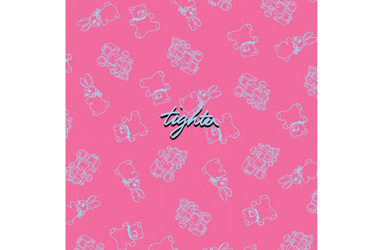Mindless Self-Indulgence
Tighter
(The End)
NYC-based electro-punk four-piece Mindless Self-Indulgence projects such a frantic intensity that most of the songs clock in under two minutes. Ultra-distorted guitar pads, synths and sound effects are layered over crazed looped beats, and tortured, fully engaged vocals that blend soulful melodies, raps and throat-shredding screams. The gestalt vibe of Tighter (largely a reissue of 1999’s Tight) falls somewhere between sticky sex and outright panic attack, recalling pop-industrial heroes like Marilyn Manson, Nine Inch Nails or even Depeche Mode, though there are also hip-hop and even bizarre, experimental elements that veer into Les Claypool territory. Primary singer Little Jimmy Urine’s voice is exceptional in both skill and melodic creativity, and a cover of Method Man’s “Bring the Pain” does not disappoint. A bonus DVD gives a taste of the band’s legendarily nutso live shows. —Tom Sturm
*
Mark Lanegan Band
Blues Funeral
(4AD)
On his seventh studio album and first without collaborator Isobel Campbell in eight years, alternative mainstay Lanegan teams with producer Alain Johannes and fellow rockers Greg Dulli (Afghan Whigs, Gutter Twins) and Jack Irons (Red Hot Chili Peppers, Pearl Jam) to craft a varied but satisfying disc filled with meditations on boredom and addiction. Opening track “The Gravedigger’s Song” pulls listeners in with lines about piranha teeth and a groove-heavy rumble reminiscent of the singer’s time spent with Queens of the Stone Age. The Queens’ Josh Homme shows up to lend guitar flourishes to “Riot in My House,” while “Ode to Sad Disco” casts Lanegan’s brooding baritone over a synthesizer and drum machine beat with surprisingly positive results. Many tracks amaze with their crisp production, but at 55-plus minutes, the CD requires some time. —Michael Cimaomo
*
Mairi Morrison and Alasdair Roberts
Urstan
(Drag City)
Urstan boasts a remarkably surprising opening for something that is, in a lot of ways, a quite traditional Celtic album. In the opener, “Mìle Marbhphaisg air a’ Ghaol,” the Scots Gaelic lyrics carry a thoroughly traditional melody (sung by Mairi Morrison), but the rhythms are positively jazzy, and there’s even a pronounced hint of Africa in the rollicking, electrified guitar. The effect is revelatory, as if very old music accidentally snuck its way right into an au courant multi-genre soup. Some of the tunes sound bright and cheery in more strictly traditional fashion; in others, Morrison brings something approaching an Appalachian soulfulness to the music. Morrison’s easy manner and rich voice provide a strong center, and the playful and innovative band provides a beautiful complexity. If you long for Celtic music that moves well beyond cliche, you’ll find it in this vibrant album. —James Heflin



